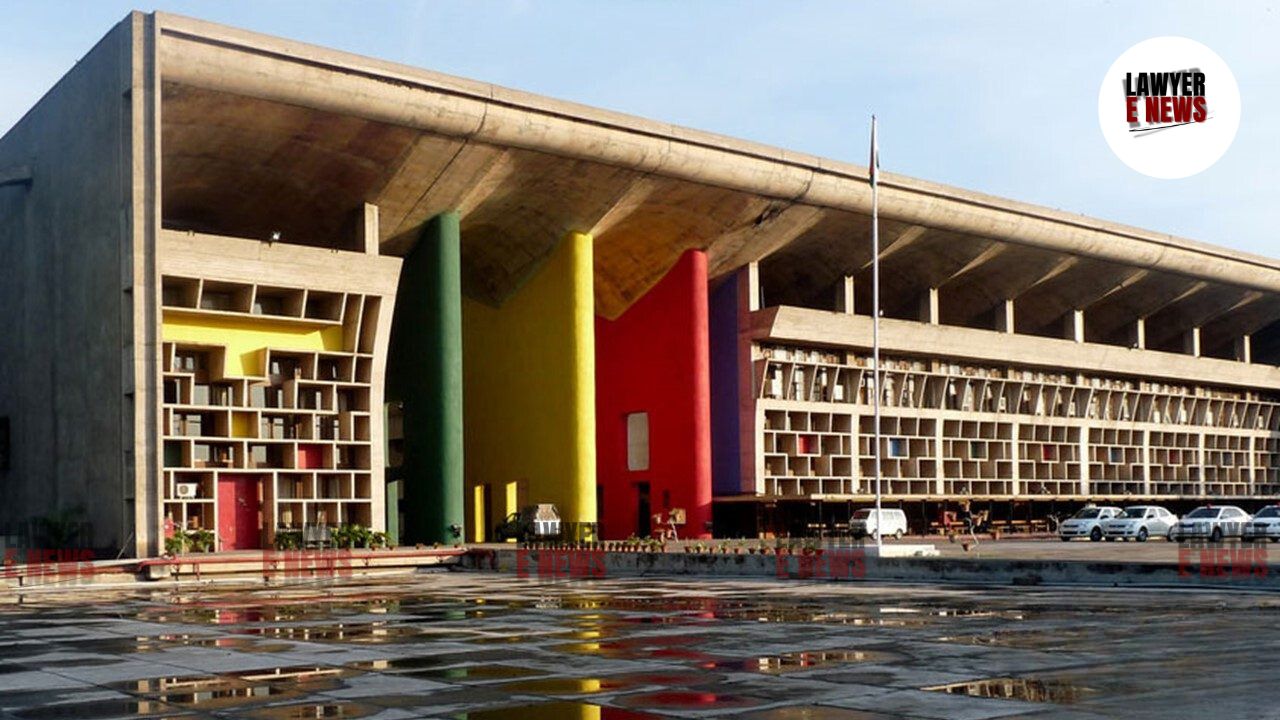-
by sayum
14 February 2026 2:22 PM



The Punjab and Haryana High Court has upheld the dismissal of a police constable, Dalbir Singh, from the Punjab Armed Police (PAP), Jalandhar Cantt., over his alleged extremist associations. The court ruled that holding a departmental inquiry was not feasible due to the prevailing security risks and the potential threat to witnesses. The dismissal was carried out under Article 311(2)(b) of the Constitution, which permits termination without inquiry in cases where it is not reasonably practicable to hold one.
Dalbir Singh, a constable in the 75th Battalion of PAP, was dismissed from service on January 1, 1988, under Rule 16.1 of the Punjab Police Rules, 1934, read with Article 311(2)(b) of the Indian Constitution. The dismissal order followed reports alleging that Singh had ties to extremist elements in Punjab and that his continued service posed a security risk. His appeal was dismissed by the Deputy Inspector General of Police, PAP (Administration), Jalandhar Cantt., in March 1988. Singh subsequently challenged the decision in the trial court, which ruled in his favor. However, the state’s appeal to the Additional District Judge was dismissed, prompting a second appeal to the High Court.
The court emphasized that the crux of the case was whether the authorities were justified in bypassing a departmental inquiry. The state argued that the inquiry was not practicable due to the danger it posed to witnesses, given Singh's alleged connections with extremists. The Commandant of the 75th Battalion, in his report, asserted that Singh’s actions could jeopardize public safety and the integrity of police operations.
The High Court noted that under Article 311(2)(b), the requirement for holding a departmental inquiry can be waived if it is impractical due to security concerns. Justice Namit Kumar ruled that the decision of the disciplinary authority to dispense with the inquiry was reasonable and supported by credible intelligence reports.
The state produced several pieces of evidence, including intelligence reports and internal communications, which detailed Singh’s alleged extremist sympathies and involvement with banned groups. The court acknowledged the gravity of the reports, which stated that Singh had praised militant actions and had connections with individuals involved in attacks against senior police officers. The court found these reports to be significant in justifying the invocation of Article 311(2)(b).
The court cited the principle laid down by the Supreme Court in cases involving Article 311(2)(b), which permits termination without inquiry when public safety is at stake. "The satisfaction of the disciplinary authority that holding an inquiry is not reasonably practicable is conclusive, provided it is backed by material evidence," the court stated. The High Court further ruled that in Singh's case, the risks to witnesses and the potential exposure of sensitive information during an inquiry justified the dismissal without further proceedings.
Justice Namit Kumar, in his ruling, stated, "The disciplinary authority is best placed to judge whether an inquiry would be feasible in cases where there are credible threats to the security of witnesses and the functioning of the police force. In this case, the evidence overwhelmingly supports the decision to dismiss the respondent without an inquiry."
The High Court’s decision reinforces the provision under Article 311(2)(b) that allows for dismissal without inquiry in cases where conducting one is deemed unsafe or impractical. This ruling underscores the balance the judiciary maintains between safeguarding public security and ensuring procedural fairness in employment termination cases. The case is expected to serve as a key precedent in matters involving police personnel with alleged extremist ties.
Date of Decision: September 3, 2024.
State of Punjab vs. Dalbir Singh
